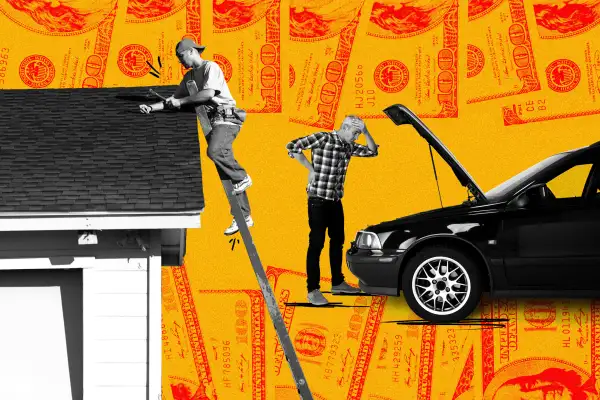These Are the 10 Most Common Money Emergencies for Americans

Smart personal finance is about expecting the unexpected, which is why the first step on a savings journey is usually to build an emergency fund to insure against sudden hardship. It's an unfortunate fact of life that at some point, your car will break down on the side of the road (literally or figuratively), and you'll need a plan to pay for it.
But among a surveyed group of consumers, 4 in 10 say their bank account balances fall under $50 at least once a month, and 30% are not prepared to pay for a $5,000 emergency, according to a report from digital personal finance company Achieve.
Medical bills are the No. 1 most frequent financial hardship that Americans encounter, according to respondents, but other common challenges include unemployment, car repairs and home appliance meltdowns. Stashing money somewhere like a high-yield savings account can enable you to withstand these types of events.
To gain a better understanding of how much you should save for emergencies, it's helpful to have a sense of which financial crises are most common and how they come up.
In Achieve's survey, consumers were asked if they've experienced various issues in the past year. Here are the 10 most common financial hardships based on the share of people who said yes:
- Medical issues: 29%
- Lost job/wages: 20%
- Car problems: 14%
- Bank overdraft or late fee: 13%
- Home repairs or replaced appliance: 12%
- Death of a family member: 7%
- Became an adult's caretaker: 5%
- Legal issues: 5%
- Victim of a crime: 5%
- Divorce or separation: 4%
Nearly a third of respondents have experienced multiple hardships from the list above in the past year. However, many people underestimate these risks and don't reserve enough money for emergencies.
Having a solid emergency fund can cushion you from the risk of running out of money if something unfortunate happens. Relying on credit cards to deal with emergencies is ill-advised, as interest rates on credit card debt are typically over 20%.
"For consumers living in this extreme paycheck-to-paycheck predicament, an emergency or unplanned expense can easily shift from minor inconvenience to major life disruption," Andrew Housser, Achieve's co-CEO, said in a report. "When these situations arise, consumers who turn to credit cards and other debt to get by may experience stress, anxiety and other negative effects to their well-being."
Storing three to six months' worth of living expenses in an interest-bearing savings account will create a backstop for when you need it.
More from Money:
11 Best High-Yield Savings Accounts of 2024
Workplace Health Insurance Costs Could Jump 7% Next Year
10 Ways Millionaires (Legally) Keep Their Taxes Down in Retirement
